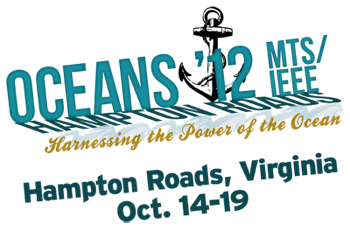
|
Author Instructions | Technical Program | Preliminary Program | National Ocean Enterprise | Integrated Ocean Observing | Marine Renewable Energy | Marine Spatial Planning | Marine Vehicle Autonomy | Sea Level Rise / Coastal Inundation |
Integrated Ocean Observing serves as a foundation of the National Ocean Enterprise:
-
Given the many changes taking place in our oceans and the importance of the oceans to the U.S. and global economies, future energy outlook, food security, and national (and international) security, the United States must demonstrate even greater leadership in environmental information by encouraging and facilitating the investments necessary to support and sustain integrated ocean data collection efforts. President Obama’s Ocean Policy Task Force recognized and recommended such a strengthened ocean observing emphasis and framework as part of a comprehensive ocean strategy. Such a commitment, which includes data management, data integration, robust modeling and verification, and resultant products and services, is key to translating a scientific understanding in isolated areas and over short periods into a fully realized knowledge of the ocean and all of its interfaces.
-
Accurate, timely and dependable in situ and remotely sensed ocean observations are critical to understanding the key attributes of our oceans. Robust mapping of these attributes and correlation with past, present, and future events will feed, expand, improve, and deliver models with critical predictive capabilities which will continue to be refined over time by real-time measurement-based feedback.
-
Understanding (and predicting) the contributions of our oceans to weather, climate, ecologies and biologies will pay huge dividends to society at all levels. The resulting improvement in intelligent “tactical” decision making will ensure that far-reaching strategies for the preservation of our ocean and coastal areas will not be compromised. These strategies will ensure the appropriate balance of societal, ocean, and planet-oriented need are met while avoiding many of the potentially disastrous and tragic effects of unforeseen events.
-
A robust understanding is required to underpin the data-driven principles of the president’s Coastal and Marine Spatial Planning efforts and regional planning boards that hope to provide both strategic and tactical guidance to both decision makers and users. Without the integrated data and the information and predictions that an integrated environmental information pipeline can deliver, bureaucracies charged with managing competing interests will be sailing into dangerous waters without a chart or means to safely navigate through policy options.
-
Since 2001, the national framework necessary for the integration of ocean environmental data and information has been called out as a priority, even codified in law, but never sufficiently resourced to realize its potential. The nation has an opportunity once again to translate policy discussions into effective action as President Obama’s National Ocean Policy comes to grips with its strategic vision and execution plans. In the very near future, these priorities and strategies will be woven into a series of plans which will dictate how we seize or miss the opportunity to harness the knowledge of the ocean and our planet’s environment.
-
Recognizing finally that we live in a world of scarce resources, all of our allocation decisions must result in the return of real value to our citizenry. In the final analysis, having predictive models of how the ocean and its inhabitants function and the ability to refine sophisticated computer simulations using high-quality observations from remote and in situ distributed sensor networks collected over extensive periods of time will be a national treasure and security issue in which our nation not only should, but must, invest.
Integrated Ocean Observing links:



